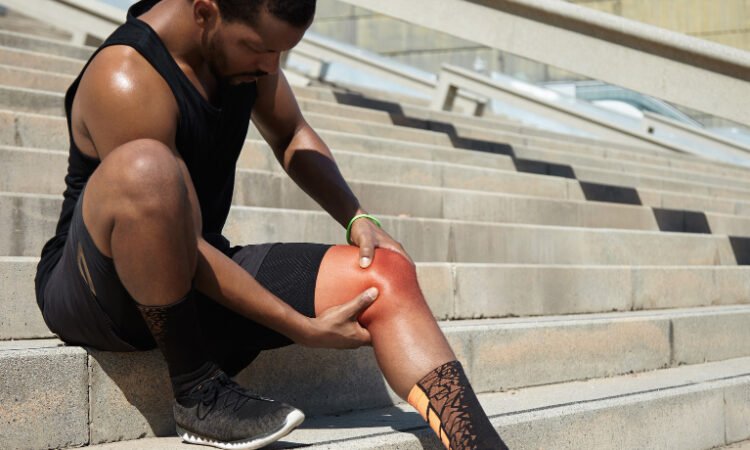
I can offer some general suggestions that might help alleviate muscle strain. If you have a severe or persistent muscle strain, it’s always best to consult a healthcare professional for advice tailored to your specific situation. That said, here are some remedies that may help:
- Rest: Allow the strained muscle to rest and recover. Avoid engaging in activities that could worsen the strain.
- Ice: Applying ice to the affected area can help reduce swelling and provide pain relief. Wrap the ice in a thin cloth to prevent direct skin contact and apply it for about 15-20 minutes every few hours during the first 48 hours after the injury.
- Compression: Using an elastic bandage can help reduce swelling by applying gentle pressure to the affected area. Make sure not to wrap it too tightly.
- Elevation: Elevating the injured area can also help reduce swelling. Prop the injured muscle up on pillows when resting.
- Pain Relief Medications: Over-the-counter nonsteroidal anti-inflammatory drugs (NSAIDs) like ibuprofen or naproxen can help manage pain and reduce inflammation. Be sure to follow the recommended dosage and consult a doctor if you have any underlying health conditions.
- Heat Therapy: After the initial 48 hours, applying heat to the strained muscle can help relax it and improve blood flow, which aids in healing. Use a warm compress or take a warm bath.
- Gentle Stretching: Once the acute phase has passed, gentle stretching exercises can help improve flexibility and prevent stiffness in the healing muscle. Avoid any aggressive or painful stretching.
- Hydration and Nutrition: Staying hydrated and consuming a balanced diet rich in nutrients can aid in the healing process.
- Massage: Light massage of the affected area might help promote blood flow and relax the muscle. However, avoid deep tissue or intense massage, as it could worsen the strain.
- Gradual Return to Activity: Once the muscle starts feeling better, gradually reintroduce activity to avoid re-injury. Start with low-impact exercises and slowly increase intensity.
Here are some herbs that are sometimes used to help with muscle strain, but their effects might not be scientifically proven:
- Arnica: Arnica is often used topically in the form of creams, gels, or ointments to relieve pain and inflammation associated with muscle strains. However, its effectiveness is debated, and some people may be sensitive or allergic to it.
- Turmeric: Curcumin, the active compound in turmeric, has anti-inflammatory properties and is sometimes used to manage pain and inflammation. You can consume turmeric in food or as a supplement, but be aware of potential interactions with other medications.
- Ginger: Ginger also has anti-inflammatory properties and might help reduce muscle pain and inflammation. It can be consumed as tea or added to food.
- Chamomile: Chamomile is known for its calming and anti-inflammatory properties. Chamomile tea or creams containing chamomile extract might provide some relief from muscle discomfort.
- Eucalyptus: Eucalyptus oil is sometimes used topically in massage oils or creams to provide a cooling sensation and promote relaxation. Be cautious about using essential oils directly on the skin and consider diluting them.
- Lavender: Lavender oil is known for its soothing properties. It might help with muscle relaxation when used in massage or added to a warm bath.
- Cayenne Pepper: The active compound in cayenne pepper, capsaicin, is believed to have pain-relieving effects when applied topically. It works by reducing substance P, a chemical involved in transmitting pain signals.
- Comfrey: Comfrey has been used traditionally to treat bruises, sprains, and strains. However, there are concerns about its potential toxicity, so it’s important to use comfrey-containing products cautiously and under guidance.
Remember that while herbal remedies might provide some relief for muscle strain, they might not be a substitute for proper medical care, especially if the strain is severe or doesn’t improve over time. Always prioritize your safety and well-being by seeking professional medical advice.
Remember, these are general suggestions and might not be suitable for all situations. If you experience severe pain, persistent swelling, loss of function, or other concerning symptoms, it’s important to seek medical attention. A healthcare professional can provide personalized advice and treatment recommendations based on the severity and type of muscle strain you’re experiencing.




